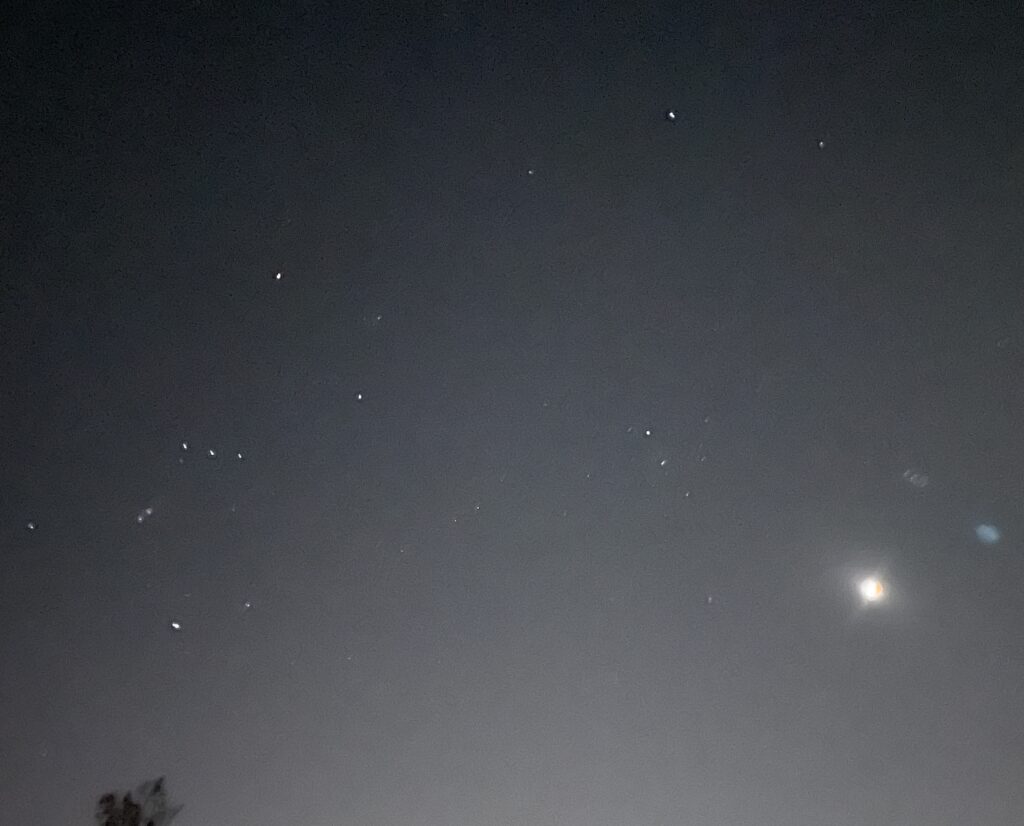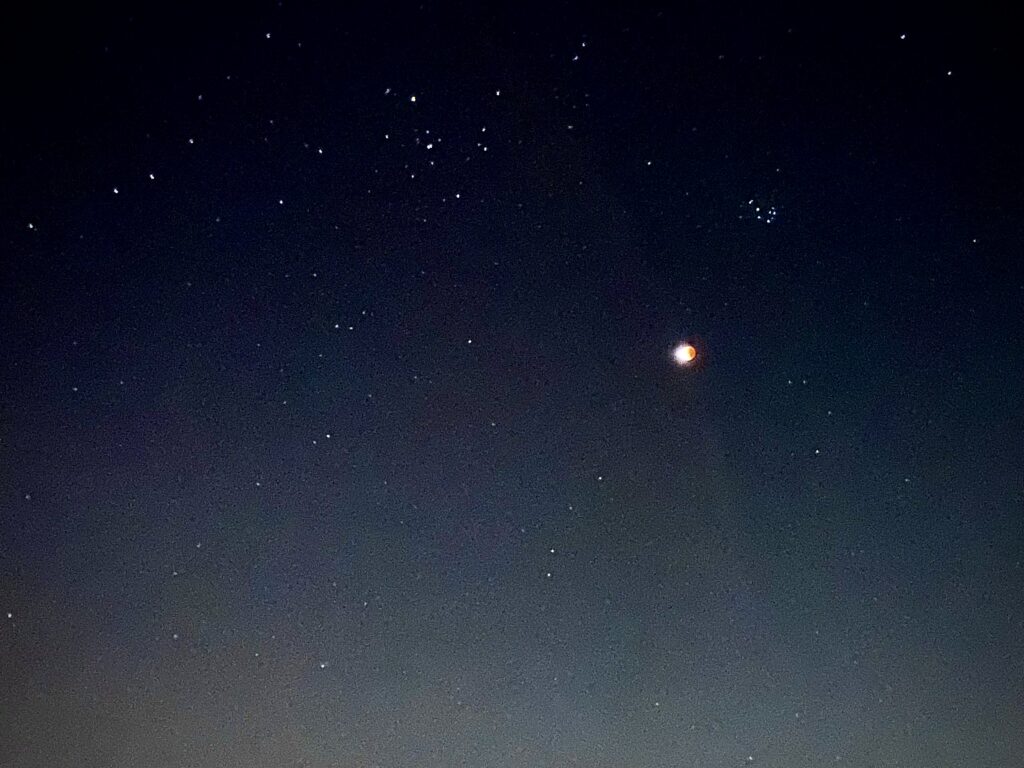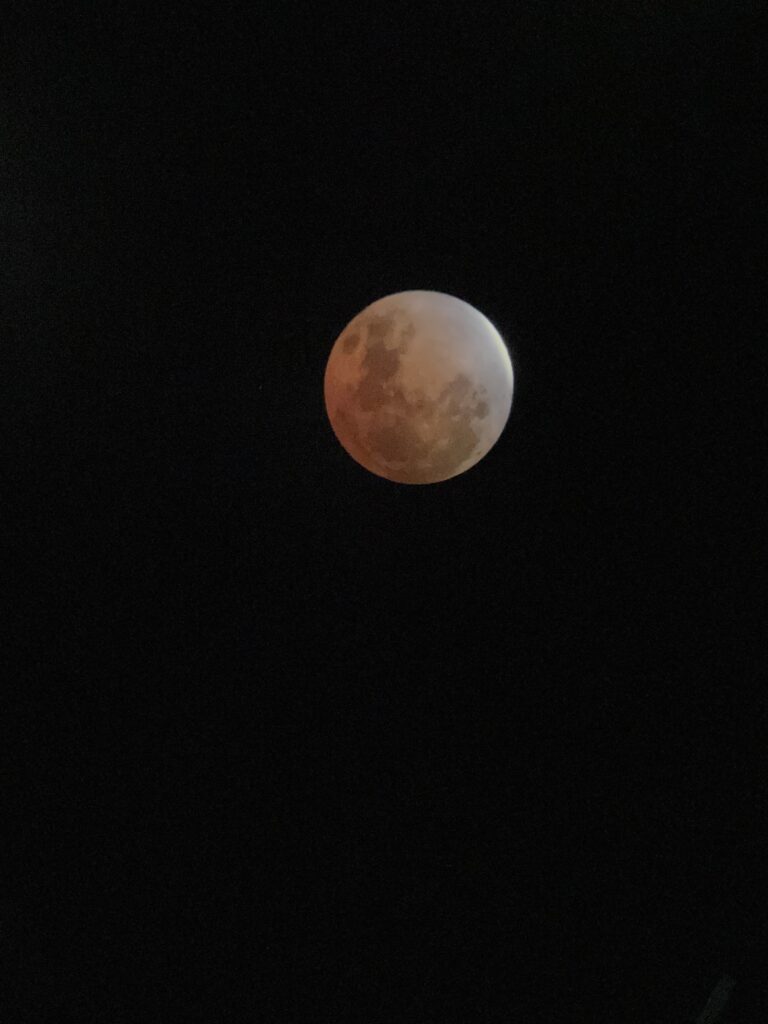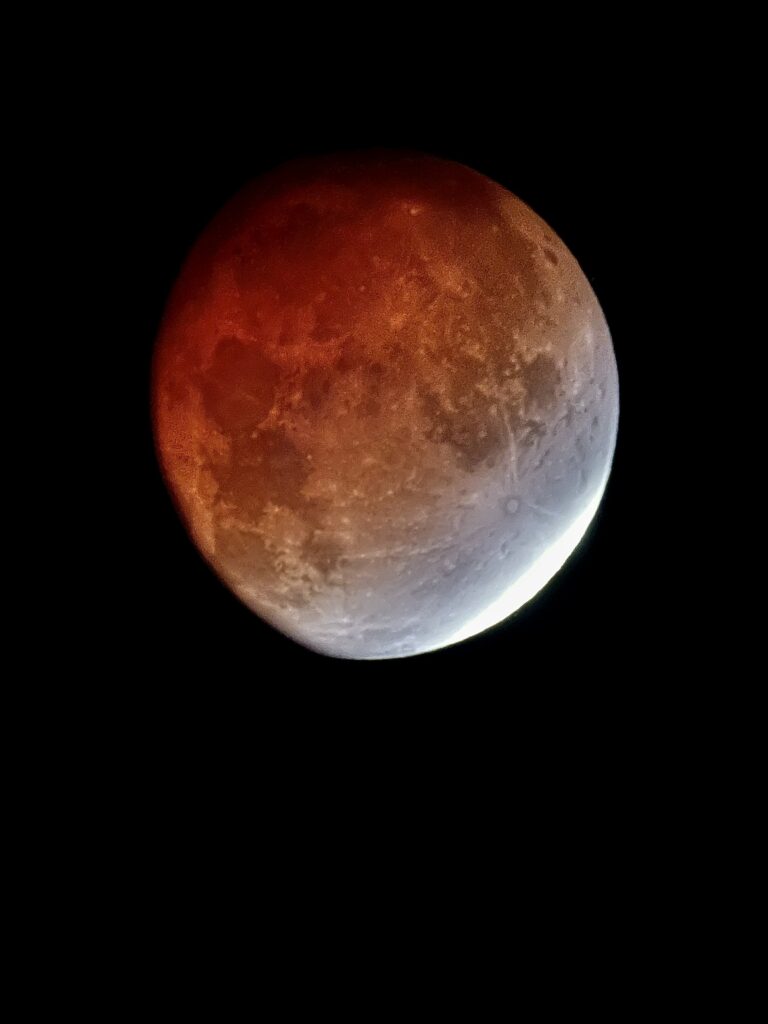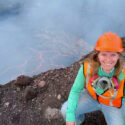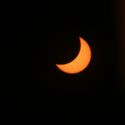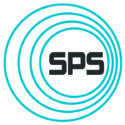If you’re in the tri-state area and look to the skies early on Thursday morning, June 10, you might notice something highly unusual — the rising sun will resemble a crescent moon.
Lauranne Lanz, assistant professor of physics, explains what you need to know about this quirky springtime sunrise.
1. Wait, what?
On June 10, we’ll get to see a partial solar eclipse, Lanz says. Solar eclipses happen when the moon passes in front of the sun from our perspective here on Earth. Partial eclipses happen when the moon is in front of only part of the sun at the start or end of the eclipse. In this case, 80 percent of the sun will be blocked by the moon.
2. It’s not annual — it’s annular.
Lanz explains that what’s happening on June 10 is actually an annular eclipse, which is a specific kind of solar eclipse. And this one is pretty rare, happening only twice in our area in the past 150 years.
“The moon’s orbit of the Earth is an ellipse — an oval — rather than a perfect circle, so sometimes it’s closer to the Earth and sometimes it’s further away,” she explains. “When it’s further away, it’s a little bit smaller than the sun in terms of how much of the sky each fills up, so at the moment of exact alignment, you can see a ring — an annulus — of the sun around the edges of the moon.”
3. Can I see it?
Kind of. On the east coast, we won’t see the full annular eclipse due to timing and alignment. But, we will be able to see the partial alignment that gives rise to a special sunrise described as a scimitar — a curved sword — as long as it’s not cloudy.
“It will be visible right at the east-northeast horizon at 5:32 a.m. and will gradually shift away from the sun and be gone by 6:30 a.m.,” Lanz says.
So set your alarms bright and early for this once-in-a-lifetime magical morning!
— Emily W. Dodd ’03





